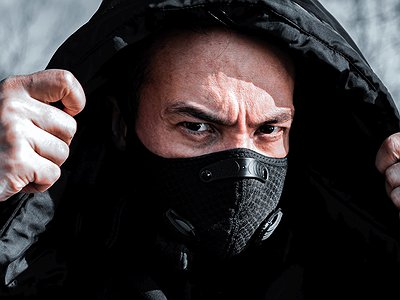Take us through a day in your life, from a possible morning routine through to your work, please. Do you have a fixed schedule? How do music and other aspects of your life feed back into each other - do you separate them or instead try to make them blend seamlessly?
I’m very much someone that loves a routine and fixed schedule, but I do freestyle through it.
The first thing in the morning is I’ll check my phone for texts or emails from the office, my team (my manager and my label A&R). They are based in the Netherlands, while I’m in New York. So by the time I wake up, they’ve already had 6 hours of being at work. When I step out of bed, I like just staying in pajamas and start tackling the first things behind the computer which might need an urgent response. Maybe it’s bouncing stems, maybe it’s going through top-lines, maybe it’s making small tweaks to some feedback I got. Afterwards, I’ll get dressed and have breakfast.
Usually after that I’ll go into 15 minutes of practicing playing the piano, 15 minutes of some DJ tricks training and then 15 minutes of some light Kung Fu practice. After that I’ll be ready to tackle big projects behind the computer. This could be working on a track, but also editing or recording a new YouTube video. Then it’s lunch time and my wife will come in from work so we can have lunch together. After lunch, there might be a Zoom meeting, but then after I’ll continue with the big project. At 15:30 it’s snack time. I’ll usually have a protein shake, some cheese and some fruit and for me this marks the point that about and hour after that, I will work out. I’ll snack behind the computer while I work a bit more. My workouts aren’t long, about 15-25 minutes. They involve sets on a timer, doing cardio and combining them with weights. After a set of abs, I’ll finish off with stretching and then it’s about an hour until dinner time. I can usually squeeze in some more work there.
After dinner, I often grab one more hour behind the computer until it’s sitting down to have an hour of quality time with the wife. We’ll sit, without devices and talk to each other about the day and its events and after we get ready for bed.
Can you talk about a breakthrough work, event or performance in your career? Why does it feel special to you? When, why and how did you start working on it, what were some of the motivations and ideas behind it?
My official international breakthrough was the remix I did for Green Velvet “The Stalker”. It was thanks to Gaston and Renee again that I got this chance. They were asked to do an official remix for it and they pushed me, as the new talent, to have a shot at it too. I was super inspired to do the remix as I had heard the track in a club only the week before. I remember thinking on the dance floor: “This bassline sounds amazing, but it could use some better beats!”. Little did I know I was able to do that the week later! It was a short studio session, it took me only 4 hours to finish it, but I handed it in and the label loved it! In fact, Carl Cox started playing it out heavily and my international career was born because of all of this.
There are many descriptions of the ideal state of mind for being creative. What is it like for you? What supports this ideal state of mind and what are distractions? Are there strategies to enter into this state more easily?
I’m a Christian, so I listen to the Holy Spirit while I create. Some people might think it’s the voice of intuition. Some people call it the flow state. For me it’s like listening to God’s Helper whispering in my ear on what to do next.
I often even leave myself out of the equation and let me be lead by creation itself. It’s really as simple as that. I can tell you to turn off your social media and what not, but for me texting or browsing through a news feed while something renders actually helps! It resets my ears and creativity and when I get back to my project, I can freshly approach it.
Sometimes people get stuck inside the project, because they are so deep in it. They dig a hole for themselves. Their life becomes the project. And if the project fails, it feels like their life is a failure. I stay more on the surface and flirt with the project, so to say. I’ll dive deeply into it, but then I get out easily as well. Throughout all the pressure that life brings, I’ve really been enjoying getting into that ultimate state of creativity.
Music and sounds can heal, but they can also hurt. Do you personally have experiences with either or both of these? Where do you personally see the biggest need and potential for music as a tool for healing?
Yes I have experiences with both of these. I remember having sessions which I called “Bleeding Ears”, hours and hours of tweaking one hi-hat without result. Turning the music louder and louder until I couldn’t hear anymore. Taking my failed project back with me into real life and taking that out on my relationship, my family. The mind, not music, the mind can be your worst enemy.
The power of music comes from creation. To be able to create something from nothing. To be able to pack emotions into a little package that you call a track. To be able to detach from the world and enjoy something amazing you just made. That type of detaching and enjoying being the creator of something fantastic, is the most powerful thing. Then, when it goes out into the world and touches and helps people, to give them unique and monumental memories with something you have created, that’s the gold!
There is a fine line between cultural exchange and appropriation. What are your thoughts on the limits of copying, using cultural signs and symbols and the cultural/social/gender specificity of art?
I think art should be freedom. I think art should be out there to enjoy, but it is nice to be recognized and compensated as the artist. Within limits of copying and copyrights, in music I feel we are still dealing with an old system. Music is digital now, music is streamed now. Music is being bootlegged and broadcast more than we can register through the old system.
I think that needs a complete make-over and needs to be brought up to speed with 2021 and beyond. Implementing tools like blockchain for it to be traced back to the original artist and for them to stay at the root of the exposure of the work.
Our sense of hearing shares intriguing connections to other senses. From your experience, what are some of the most inspiring overlaps between different senses - and what do they tell us about the way our senses work?
It’s relatively simple, as senses cause sensation, and sensation causes experience. Experience triggers memory and emotion. It’s beautiful how that works and it’s beautiful how we are wired like that. But then combine loud music in an environment, surrounded by other people, building up on a similar type of energy. The smell that comes with an outdoor festival, the temperature change, the day turning into the night while these magnified sonic frequencies run through your body. It’s simply amazing. I’ve been missing the live experience as I’m sure you have too!
Art can be a purpose in its own right, but it can also directly feed back into everyday life, take on a social and political role and lead to more engagement. Can you describe your approach to art and being an artist?
My art is more there for an escape. We all get bombarded with daily life on a regular basis. With the tons of politics, gossiping about politics and conspiracies that are going on. It’s all there, all day. People worry, people are anxious. I worry too and I get stressed out thinking about the state the world is in. I’ve always admired art that takes a role in that. Art that unites people and that gives people hope.
I’d love my music to do that too, but not in a political way. My music has always been a package of positive energy and memory, providing you with a momentary escape and a good time.
What can music express about life and death which words alone may not?
Music is the continuation of all frequencies as this reality continues within creation, dead or alive, as it resonates forever.



